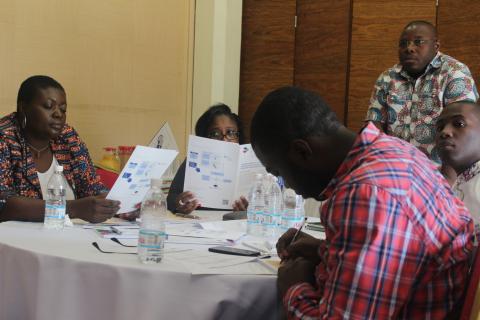
In December 2016, IDEV published the Comprehensive Development of Evaluation Results (CEDR), the biggest ever undertaking by the evaluation team and a unique product in evaluation spheres. The CEDR measures the relevance, effectiveness, sustainability and efficiency of AfDB’s operations across the African continent over the past decade. Half a year after its publication, the team dedicated a day to reflect on the CEDR experience, with the aim of drawing lessons and formulating a synthesis of what went well and what could be done better in the future. In his opening remarks, IDEV Evaluator General Rakesh Nangia reminded the team of how the CEDR came about. Back in 2013, ADF Deputies had requested a comprehensive view of the Bank's results and he had spontaneously agreed to produce one in time to inform the 2016 ADF replenishment meeting. Rakesh reminded the team that five methodological options were proposed to the Board of the AfDB and the most complex one was retained. IDEV evaluators had their work cut out for the next three years.
Participants of the workshop were asked to reflect on the positive aspects of the evaluation process and what, with hindsight, could have been improved.
One of the main challenges evoked by the team was the total lack of existing methodology to conduct such a complex evaluation. The team reached new heights in collaborative working and enhanced their individual and collective capacity by sharing experiences and working across boundaries. The team agreed that a project management tool was necessary, but that at the start of the process, no software tool could have afforded the clarity needed to design the CEDR process. Because of the innovative nature of the undertaking, the design phase was complex and iterative. The methodology finally adopted could in future serve as a framework for a similar challenge for IDEV and for other evaluation teams.
"The team had to constantly adapt to accommodate methodological and practical challenges which arose along the way. The positive outcome was that the challenges made it an even more enriching learning experience. "
Penelope Jackson, one of the two coordinators of the CEDR synthesis quality assurance process.
The IDEV team agreed that producing the CEDR was a unique experience. The expected outcome of the learning event is a summary report of lessons learned which will serve to inform future complex evaluations, both within IDEV and among evaluation communities across the globe.


